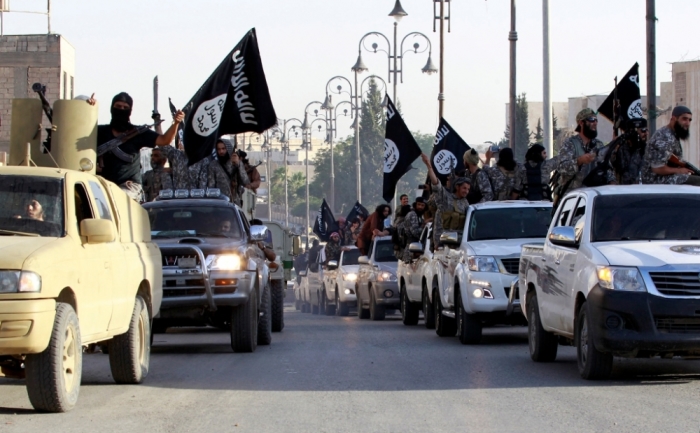Is Peace With ISIS, Boko Haram Possible? Catholic Priest and Author of 'Charity Peace Model' Explains Why It Is (Interview)

A Catholic priest, author, and founder of organizations such as Madonna University Nigeria, has said that peace, even with members of prominent terror groups such as ISIS and Boko Haram, is "really possible," as long as they undergo a process of re-orientation and see who they truly are, as creations of God.
Father Emmanuel M.P. Edeh said in an email interview with The Christian Post on Wednesday that his book, Edeh's Charity Peace Model, is based on the African philosophy of mmadi, which sees man as "ontologically good, deserving dignity and respect."
Edeh said that corruption and evil, such as the actions carried by ISIS and Boko Haram, results due to man using free will to make wrong choices. He suggested that members of such terror groups have failed to understand this ontological goodness of human beings, which forms the basis of peaceful co-existence in society.
Edeh, who is also the founder of Catholic Prayer Ministry – Worldwide and Center for Peace, Justice and Reconciliation Nigeria, earned both a masters degree and PhD in philosophy from De Paul University in Chicago.
His other published books include: Towards an Igbo Metaphysics; Peace to the Modern World: A Way Forward Through the Concrete Living of the Existential Dictates of the African philosophy of Being; Jesus the Saviour in our Midst, The Holy Spirit Acting in our Midst, and others.
Below is an edited transcript of Edeh's interview with CP, where he elaborates on the principles behind the mmadi philosophy, how it shapes Edeh's Charity Peace Model, and how it can be applied to major world conflicts today.
CP: According to the African Philosophy of mmadi, God is the supreme expression of good, and there is a vertical and horizontal relationship between God, humans and creatures. How and why does corruption and evil in the world occur?
Edeh: There are two key elements in relation to [t]his question: there are the philosophy of mmadi and the principle of servant leadership. The philosophy of mmadi is derived from the philosophy of being which sees man as ontologically good, deserving dignity and respect; while the principle of servant leadership is hinged on the service to humanity over and above personal interests. In this regard, when leaders see their subjects from the view point of mmadi, that is 'being good and deserving respect' then they will see it as their responsibility to provide and cater for them. There should be a flip of the leadership pyramid structure such that the leader realizes that the power he has got is for a responsibility toward the people.
On the other hand, the horizontal relationship is concerned with man's relationship with others. The relationship challenges the leader to have a true understanding of the people under his care, for they deserve respect and dignity because of their ontological nature as sharing in the good that is.
The idea of horizontal and vertical relationship entails the relationship between the highest and the lowest. The vertical relation in mmadi reflects the highest good (summum bonum) and the subsidiary. The approach from vertical relationship is between the supreme and his subjects, but the relationship has to come down to elevate our position as Jesus the Saviour did.
This is the vertical relationship as reflected in mmadi. The most powerful and the weak have a common ground where they treat each other as equals.
Here vertical relationship is tilted to become horizontal, that relationship in the pyramid structure is such that God, the highest Being, has the relationship of the creature coming down to suffer for them.
The question is: is your leader able to come down and have the true understanding with his people, thus letting the vertical relationship to inverse? So power then belongs to his subject who now shares the power and responsibility. When followed, the principle of mmadi will infuse this virtue in the people's consciousness.
The presence of evil and corruption in the world is as a result of man's free will to choose between good and bad actions. Since man is ontologically good, he is expected to radiate goodness wherever he finds himself. To this end, corruption is as a result of man's wrong choices made possible by the presence of his free will.
The philosophy of mmadi helps human to make right choices toward individuals. Freedom begets responsibility, mmadi helps us in our ability to take good actions. In other words corruption is as a result of man's inability to choose and do good. It is not in man's nature to be corrupt since man shares in the nature of the supreme good.
CP: For over five years now, terror group Boko Haram has been attacking towns, villages and communities throughout Nigeria, and it has said that its motivation is to drive out all Christians from the country. What does the mmadi philosophy say about the nature of groups like Boko Haram, and why they carry out such violence?
Edeh: Groups like Boko Haram are not truly followers of the prophet, but attack both Muslims and Christians, especially women and the weak and are against Western education.















![[Ready to PUB] Christian psychologist: Kids must develop 'resilience' to fulfill God's purpose for them](https://cdn.christianpost.com/images/cache/thumbnail/25/92/259219_a_300_200_658_146.jpg)











